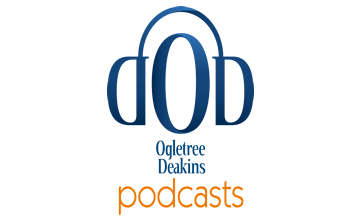Podcast: Play in new window | Download (Duration: 16:07 — 22.2MB) | Embed
Subscribe: Apple Podcasts | Spotify | TuneIn | More
In this installment of our Payroll Brass Tax podcast series, Mike Mahoney (shareholder, Morristown/New York) is joined by Stephen Kenney (associate, Dallas) and Stephen Riga (counsel, Minneapolis/Indianapolis) to discuss how nondiscrimination testing rules under Internal Revenue Code Sections 125, 105(h), and 129 affect payroll and tax reporting for cafeteria plans, self-insured health plans, and dependent care assistance programs. Mike, who is the chair of the Employment Tax Group, Stephen, and Stephen review who qualifies as a highly compensated or key employee, the consequences of testing failures, and critical timing considerations, as well as offer practical guidance on prevention strategies, coordinating with benefits administration, and ensuring accurate Form W-2 reporting.
